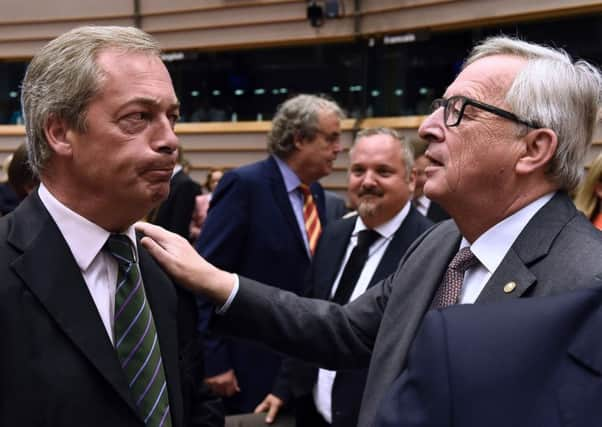No Brexit trade deal without freedom of movement, warns Merkel


Speaking ahead of David Cameron’s first meeting with EU leaders since losing last week’s referendum, Mrs Merkel said the UK would not be allowed to “cherry-pick” the elements of EU membership it wants to hold on to after withdrawal.
Mr Cameron has issued an appeal to the other 27 EU nations to take a “constructive” approach to negotiations with his successor on Britain’s future relations with the bloc. He told the House of Commons on Monday there was “a very strong case” for trying to remain in the single market, and Chancellor George Osborne said Britain should seek “the closest possible ties” with its former EU partners on trade.
Advertisement
Hide AdAdvertisement
Hide AdJeremy Hunt floated a “Norway-plus” arrangement under which the UK would enjoy single market access as the Scandinavian country does, but with the addition of limits on free movement of people. A deal of this kind should be secured and put to voters for approval in a referendum before initiating the two-year Article 50 withdrawal process, the Health Secretary said.
But Mrs Merkel told the German parliament she would ensure there was no negotiation “based on the principle of cherry-picking”.
“If you wish to have free access to the single market then you have to accept the fundamental European rights as well as obligations that come from it.
“This is as true for Great Britain as for anybody else. Free access to the single market will be granted to a country which accepts the four fundamental freedoms of movement of people, goods, services and capital.”
Mrs Merkel said Britain should remain a “friend and partner” after Brexit, but – in comments echoed by European Council president Donald Tusk – she again ruled out informal negotiations before the activation of Article 50, as sought by Boris Johnson, thought to be the most likely candidate to take over from Mr Cameron in September.
Arriving at a special Brussels summit of the European Council to discuss the fallout from Thursday’s vote, Mr Cameron said: “Britain will be leaving the European Union, but I want that process to be as constructive as possible and I hope the outcome will be as constructive as possible.
“While we are leaving the EU, we mustn’t be turning our backs on Europe. These countries are our neighbours, our friends, our allies, our partners, and I very much hope we will seek the closest possible relationship.”
While several EU leaders repeated calls for talks on withdrawal to start immediately, there were signs that some accept that the process must await the selection of a new prime minister.
Dutch prime minister Mark Rutte, who faces calls for a “Nexit” vote, said: “It would be unwise to force a rapid departure. It would be prudent to give Britain time.”